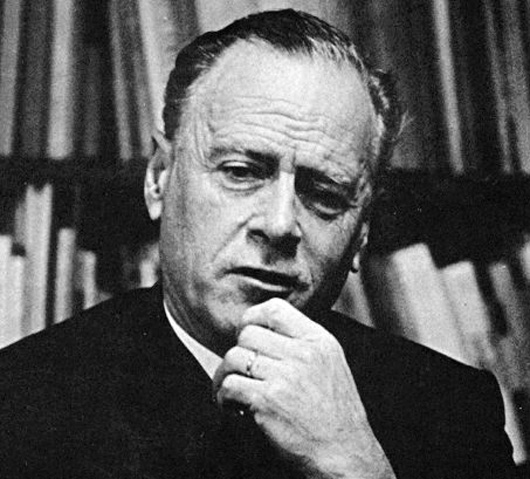A couple days before Congress announced a debt deal, half a dozen telecommunications companies filed a plan on July 29 with the Federal Communications Commission that attempts to resolve a much longer-running set of negotiations over big bucks. The “America’s Broadband Connectivity” Plan seeks to replace Universal Service Fund subsidies for telephone service in rural areas with subsidies for broadband in rural areas.
Like the federal budget negotiations, the never-ending negotiations over USF get bogged down in arguments over distribution: who gets what. Indeed, it’s almost exclusively an argument over which companies get what. But federal telecommunications policy is supposed to advance the overall public interest, not just haggle over what corporate interest gets what piece of my pie. Here is a quick take on the biggest strengths and weaknesses of the plan in terms of advancing overall consumer welfare. By “consumer welfare,” I mean not just the welfare of the folks receiving subsidized services, but also the welfare of the majority who are paying a 15 percent charge on interstate phone services to fund the USF.
BIGGEST STRENGTHS
Fixed-term commitment: Rural phone subsidies have become a perpetual entitlement with no definition of when the subsidies can end because the problem is considered solved. The ABC plan proposes a 10-year commitment to rural broadband subsidies. By 2022 the FCC should assess whether any further high-cost universal service program is needed. This idea remedies a significant deficiency in the current high-cost subsidy program, which doesn’t even have outcome goals or measures. (That’s why I like to sing the final verse from “And the Money Kept Rolling In” from Evita when I talk about universal service. Free State Foundation President Randy May asked me for an encore of this at the end of the foundation’s July 13 program on universal service, available here.)
Intercarrier compensation: “Intercarrier compensation” refers to the per-minute charges communications companies pay when they hand off phone traffic to each other. The plan proposes to ramp down all intercarrier charges to a uniform rate of $0.0007/minute. Economists who study telecommunications have pointed out for decades that high per-minute charges reduce consumer welfare by discouraging consumers from communicating as much as they otherwise would. MIT economist Jerry Hausman, in a paper prepared for the filing, estimates that low, uniform intercarrier charges would increase consumer welfare by about $9 billion annually.
Legacy obligations: Public utility regulation traditionally forced regulated companies to offer certain services or serve certain markets at a loss, then charge profitable customers higher prices to cover the losses. Judge Richard Posner referred to this opaque practice as “Taxation by Regulation“: the customers paying inflated prices get “taxed” to accomplish a public purpose, but they don’t know it. Some of these obligations continue today as federal requirements applied to “Eligible Telecommunications Carriers” or state “Carrier of Last Resort” obligations. The plan would remove these obligations for companies that are not receiving USF subsidies.
BIGGEST WEAKNESSES
Definition of broadband: The plan would continue to inflate the cost of rural broadband subsidies by defining “broadband” as 4 megabytes per second download and 768 kilobytes per second upload. This means 3G wireless, satellite, and some wireless Internet service providers do not count as “broadband.” This decision more than doubles the number of households considered “unserved” and rules out some lower-cost technologies. Jerry Brito and I have written extensively about both the economics and the legality of this. Interestingly, the ABC coalition’s legal white paper arguing that the commission has legal authority to adopt the plan makes no effort to show that the commission has authority to subsidize 4 mbps broadband; it only shows the commission has authority to subsidize some form of broadband.
Alternative cost technology threshold: The plan includes an “alternative cost technology” threshold that allows substitution of satellite broadband for customers who would cost more than $256/month to serve. Inclusion of a threshold is actually a strength. But the $256/month figure is way too high. Satellite broadband with speeds of 1-2 mbps is now available for $60 – $110 per month. Consumers who pay a 15 percent surcharge on their local phone bills to fund USF should not be expected to provide a subsidy of more than $200 per month.
Mobility: The plan appears to advocate subsidies for mobile broadband service in places where it is not currently available. So now the rural entitlement expands to include not just basic broadband service in the home to stay connected, but also a mobile service that a lot of Americans don’t even buy unless their employers pay for it! I question whether mobile broadband satisfies the 1996 Telecommunications Act’s criteria for universal service subsidies, such as “essential” (not just nice) for education or public safety, or subscribed to by a “substantial majority” of households. These questions should be thoroughly examined before anyone receives subsidies for mobile broadband. At a minimum, households should be eligible for only one broadband subsidy — wireline or mobile — but not both.



 The Technology Liberation Front is the tech policy blog dedicated to keeping politicians' hands off the 'net and everything else related to technology.
The Technology Liberation Front is the tech policy blog dedicated to keeping politicians' hands off the 'net and everything else related to technology.